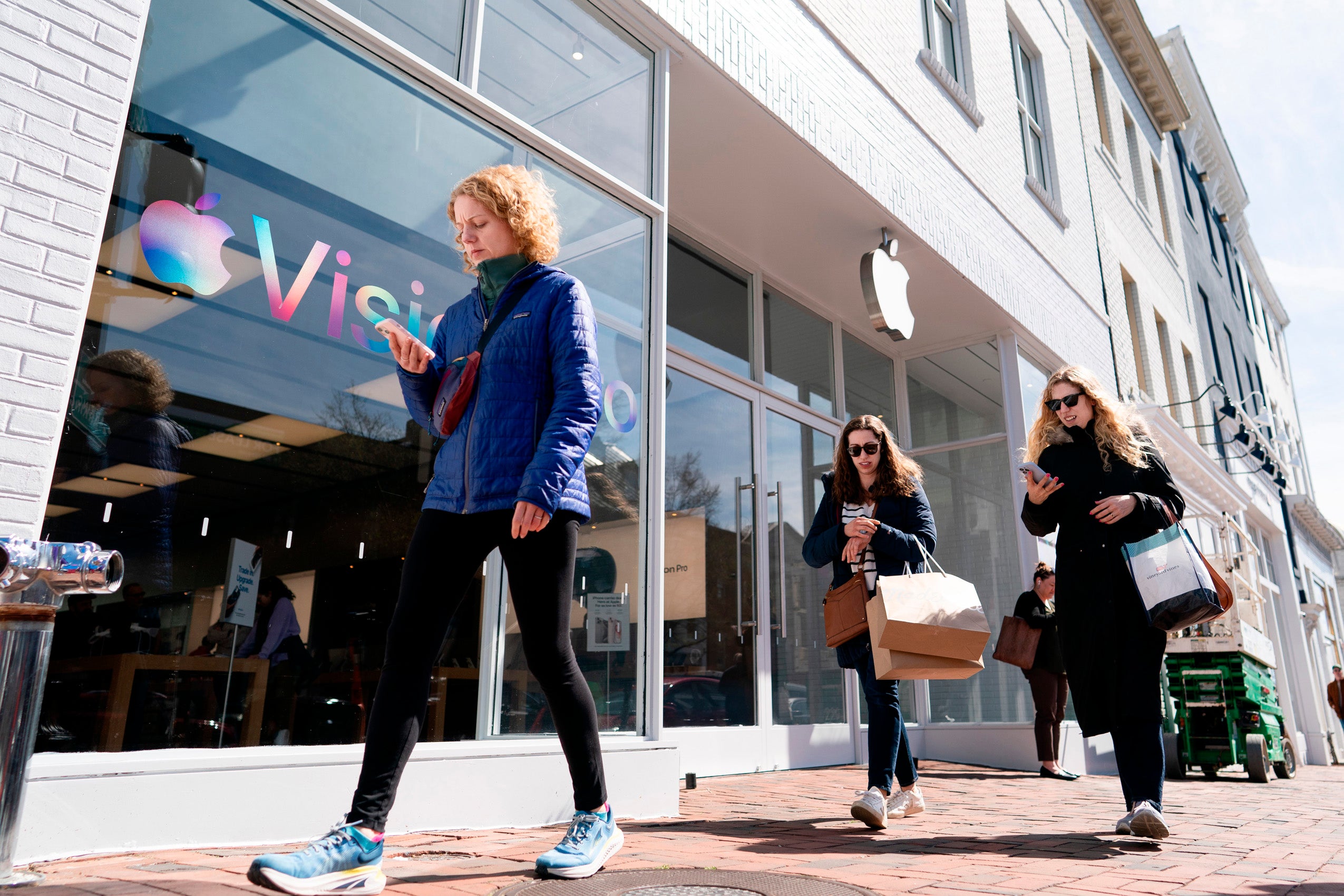The Battle for Digital Domination: FTC v. Meta Trial Heats Up
As the world’s most influential tech giants continue to shape the digital landscape, a high-stakes trial is underway that could alter the course of social media forever. The Federal Trade Commission (FTC) is taking on Meta, the parent company of Instagram and WhatsApp, in a landmark case that threatens to upend the future of these beloved platforms. In “FTC v. Meta Trial: The Future of Instagram and WhatsApp Is at Stake” (WIRED), we delve into the intricate details of this pivotal trial and explore what’s at stake for the 1.3 billion people who use Meta’s services every month.

Possible Rulings and Their Impact on Meta’s Business Structure

The FTC v. Meta trial, focusing on Instagram and WhatsApp, represents a critical juncture for the tech giant’s business. If the FTC prevails, the implications could be profound, potentially leading to a breakup or significant divestitures. The court could mandate Meta to sell off Instagram and WhatsApp, thereby dismantling its digital ecosystem. Such a ruling would fundamentally alter Meta’s market position, affecting its advertising revenues and user engagement strategies. Meta’s business model, built on the synergy of its social media platforms, could be radically altered, impacting its valuation and future growth prospects.
Conversely, a favorable ruling for Meta could reinforce its current business structure, allowing it to continue its aggressive expansion and consolidation strategies. This outcome would likely embolden Meta to pursue further acquisitions and innovations, potentially intensifying competition with rivals.
Effects on Other Tech Companies and the Broader Tech Industry
The outcome of the Meta trial could set a precedent for similar actions against other tech giants. If Meta is forced to divest, it could prompt similar investigations into Google’s dominance in search and advertising, or Amazon’s control over e-commerce. This could lead to a broader restructuring of the tech industry, with companies like Apple and Microsoft also facing scrutiny over their market practices and acquisitions. The tech industry, known for its rapid consolidation and mergers, could see a significant shift towards more fragmented and competitive markets.
Long-Term Impact on Innovation and Consumer Rights
Broader Implications for Tech Innovation and Competition
The long-term impact of the FTC v. Meta case extends to the broader innovation landscape. If stringent antitrust measures are enforced, they could stimulate a more competitive environment, encouraging smaller startups and new entrants to challenge incumbent tech giants. This increased competition could drive innovation, as smaller companies, unburdened by the bureaucratic complexities of large-scale enterprises, might innovate faster and more effectively. However, there is also a risk that stringent antitrust measures could stifle innovation by limiting the resources and scale that large tech companies can deploy to develop new technologies and services.
Changes in Consumer Protections and Privacy Regulations
Consumer rights and privacy could see significant evolution based on the FTC’s approach. A decisive ruling against Meta could lead to stricter data privacy regulations and increased transparency for users. The FTC might impose bans on certain data collection practices or require companies to grant users more control over their data. Such changes would enhance consumer protections, providing individuals with clearer information about how their data is used and stronger mechanisms to protect their privacy.
Economic Theories and Market Dynamics
Understanding the Role of Network Effects in Tech Monopolies
Network effects play a pivotal role in the creation and sustenance of tech monopolies, particularly evident in platforms like Meta’s social media ecosystem. Network effects occur when a product or service becomes more valuable as more people use it. In the context of social media, the more users a platform has, the more valuable it becomes to new users, reinforcing its dominant position. This dynamic can create significant barriers to entry for new competitors, as they must overcome the already established network effects to attract significant user bases. The FTC’s action against Meta aims to challenge these network effects, potentially by separating platforms or limiting cross-platform data sharing.
Analysis of How Tech Monopolies Affect Market Efficiency and Competition
Tech monopolies can distort market efficiency and competition by leveraging their dominant positions to exclude or disadvantage competitors. Meta’s ownership of Instagram and WhatsApp, for example, allows it to integrate user data across platforms, creating a competitive advantage that smaller competitors cannot match. This integration enables Meta to offer more targeted advertising and superior user experiences, making it difficult for new entrants to gain a foothold. The FTC’s case seeks to address these distortions, potentially leading to a more fragmented and competitive tech market, where smaller, more specialized platforms can thrive.
Social and Political Implications
The social and political implications of the FTC v. Meta case extend beyond the immediate business and legal spheres. The case raises questions about wealth inequality, as tech monopolies often concentrate wealth in the hands of a few, potentially exacerbating economic disparities. Furthermore, the political implications are significant. Antitrust enforcement can influence the health of American democracy by addressing concerns over the concentration of power and influence within a few tech giants. Ensuring a more competitive market can lead to a more balanced distribution of economic and political power.
Expert Opinions and Academic Perspectives
Legal and economic experts, including John Coates, a professor at Harvard Law School, underscore the importance of reevaluating antitrust laws to address the unique challenges posed by networked businesses. Coates argues that traditional economic theories, such as the Chicago school’s emphasis on consumer welfare based on low prices, may inadequately address the complexities of modern tech monopolies. Coates highlights the need for antitrust laws to consider broader factors, including innovation, competition, and market entry barriers, to ensure a balanced and dynamic tech industry.
Practical Steps for Consumers and Businesses
Recommendations for Consumers in Navigating the Tech Landscape
Consumers can take proactive measures to navigate the evolving tech landscape. By understanding their data rights and the terms of service on tech platforms, consumers can make more informed choices. Utilizing privacy tools and opting for platforms with robust privacy protections can safeguard personal data. Additionally, consumers should advocate for stronger regulatory oversight and support initiatives that promote a more equitable and transparent digital ecosystem.
Strategies for Businesses to Adapt to Changing Regulatory Environments
Businesses must stay vigilant about regulatory shifts and adapt their strategies accordingly. Adopting transparent business practices and complying with emerging data protection laws can mitigate legal risks. Companies should also consider diversifying their services and exploring partnerships outside the dominant tech ecosystems to reduce dependency on a few large platforms. Engaging in proactive community building and user engagement can also help establish a competitive edge in a more fragmented tech market.
International Reactions and Legal Precedents
International reactions to the FTC v. Meta trial could signal a global shift in the approach to tech regulation. Similar antitrust cases against tech giants in Europe, such as the European Commission’s actions against Google, indicate a growing international consensus on the need for stricter antitrust enforcement. These cases highlight the potential for harmonized international antitrust policies, reflecting a collaborative approach among global regulators to address the challenges posed by tech monopolies. This international alignment could lead to a more consistent legal framework, providing clearer guidelines for tech companies operating in multiple jurisdictions.
Future of Global Tech Regulation
The future of global tech regulation depends on the outcomes of ongoing and potential antitrust cases. The possibility of harmonized international antitrust policies could streamline the regulatory landscape for tech companies operating globally, providing a clearer path forward. However, the diversity of legal systems and regulatory philosophies across different regions poses a challenge. The success of harmonized policies would depend on the willingness of nations to work together, balancing national interests with the need for a cohesive global regulatory framework. This could lead to a more regulated, but potentially more competitive and innovative global tech industry.
Conclusion
In conclusion, the FTC v. Meta trial has shed light on the profound implications of the tech giant’s acquisition of Instagram and WhatsApp, with the future of these platforms hanging precariously in the balance. As discussed, the Federal Trade Commission (FTC) has taken a firm stance against Meta’s alleged anti-competitive practices, citing the company’s misuse of user data and stifling of innovation as key concerns. Meta, on the other hand, has argued that the FTC’s claims are unfounded and that the acquisitions have, in fact, driven growth and competition in the tech industry.
The significance of this trial cannot be overstated. The outcome will not only determine the fate of Instagram and WhatsApp but also set a precedent for future tech mergers and acquisitions. As the digital landscape continues to evolve, it is imperative that regulatory bodies like the FTC remain vigilant in ensuring that tech giants do not abuse their market power. The implications of this trial extend far beyond the tech industry, with the potential to impact consumer choice, data privacy, and innovation. As the trial unfolds, it is clear that the future of the digital economy is at stake.
As we look to the future, one thing is certain: the outcome of the FTC v. Meta trial will have far-reaching consequences that will shape the digital landscape for years to come. As we navigate the complex and ever-changing world of technology, it is imperative that we prioritize transparency, accountability, and consumer protection. The question remains: will the FTC’s efforts to reign in Meta’s market power be enough to ensure a level playing field, or will the tech giant’s influence continue to stifle innovation and consumer choice? Only time will tell, but one thing is certain – the future of the digital economy is worth fighting for.
